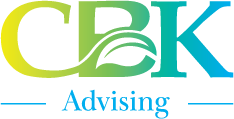Do You Self-Regulate?
Do You Self-Regulate?

INTRA-personal
- Self-awareness
- Self-regulation
- Motivation
INTER-personal
- Empathy
- Social Skills
The first three are considered intra-personal and take place within us, invisible to others. The last two are inter-personal, take place between us and others, and are typically visible in our behavior. A key point to remember is that if you don’t have well developed intra-personal competencies, it’s likely that your inter-personal competencies will be affected in a less than positive way. So, although Self-regulation is something we do internally, it can still have an impact on our observable behavior.
How do I practice Self-Regulation and keep my cool? Well, I choose not to be a victim of whatever emotions arise in me. I choose to manage my emotions by not letting others “push my buttons” — or by not letting the heat drive me to distraction! It’s a skill that involves transforming a negative, energy-draining state of mind into a positive and productive state of mind. It’s a great way to keep my cool, of course, but it’s easier said than done!
Self-regulation, in part, is the ability to control or redirect disruptive impulses and moods and the propensity to suspend judgment and think before acting. Someone low in self-regulation can be impulsive and might act on impulse as opposed to using logic and thoughtful statements. Someone with good self-regulation will keep disruptive emotions and impulses in check. Being good at self-regulation is difficult for many of us, though, especially when it comes to “triggers”. As a result of our own life experience and traumas, we all tend to have triggers — words, gestures, actions, even sounds and smells — that bring back negative experiences, causing a reaction within us that is usually unpleasant. For those who don’t have good coping skills, a trigger may cause a negative emotional reaction that can lead to inappropriate behavior. And, that is not a good thing.
“Many people who are low in self-regulation and are facing difficult or overwhelming situations tend to engage in negative self-talk.”
So, what to do? Well, when I’m working with a client who needs help with self-regulation due to triggers, we work on ways to handle the emotions that come up because of them. One way is just to remove yourself quickly from the situation or to delay having to respond. In a situation like this, you can go outside for a quick walk, or grab a cup of coffee and take a few moments to breathe. If you really think you’re going to lose your cool, just say “Let’s talk about this later this afternoon.” The good news here is that over time, and with practice, your triggers will hold less power over your emotions! And THAT is a very good thing.
As you might imagine, self-regulation is really necessary when it comes to anger management. Most people with anger management issues have never learned how to defuse their anger or distract themselves from it. A form of self-regulation for this is to use a coping mechanism, which is something I teach my clients to help them manage their anger. The four D’s can help take the edge off so you don’t lose you cool, and they help with anxiety, too:
• Drink water – it also helps to beat the heat!
• Delay the impulse to react – and use the time to cool off!
• Distract yourself – use your imagination if you can’t physically change your environment. Picture the ocean or a calm lake.
• Deep breaths – very beneficial!
Believe it or not, these actions can and do help. They help you stop and take that very necessary pause before you go any further. The important thing is remembering to do them at the time you need them! The first action I mentioned – drinking water – couldn’t be timelier with this heat, either, so drink up.
Many of your know that I coach my clients to listen first, pause, and then respond. This is an emotionally intelligent thing to do anyway, but it’s critical to self-regulation. If you are listening, you are not thinking about what you’re going to say next. You are hearing the other person – and you are buying yourself some time to keep your emotional response in check. You will be better able to keep your cool and respond instead of react, even if your response is to use one of the Four D coping mechanisms. Listening is a very good habit to get into and amazingly beneficial to the person talking and the person listening – it just takes practice!
Along with listening, I encourage being committed to not interrupting others. I know how difficult this can be, especially in a business meeting when you have something to say that just can’t wait, or during an argument with your spouse when you just have to respond to that unfair statement! Don’t do it. Just wait for the other person to finish speaking, and then say what you need to. You have shown them respect and courtesy by listening, and you’ve given yourself time to respond appropriately. Win-win, right? Finally, and this really does bear repeating, step away for a bit before responding in a difficult situation – because you know that when your self-regulation is low, your initial response is not likely to be a positive one.
Now, I’ve given you some pointers on what to do to help you keep your cool and improve your self-regulation. Here’s something you can STOP doing – by replacing a bad habit with a good one. Many people who are low in self-regulation and are facing difficult or overwhelming situations tend to engage in negative self-talk. My advice is to replace a negative thought with a positive one that is stronger and will get you moving in the right direction. Here are just a few examples from my book:
Negative Talk Positive Talk
I’m unworthy I’m worthy
I’m inadequate I’m capable
I’m a failure I’m smart
Again, this will become easier with practice – and it is so much better for you to give yourself positive affirmations than negative, motivation-crushing thoughts. Try it!
I have a good friend who absolutely detests bullies of any kind. You may think that’s true of most of us, but the news would indicate otherwise. Let’s face it; bullying extends far beyond the playground or the halls of your old junior high school. My friend believes that bullying is insidious and often not recognized for what it is, sometimes even by the bully! My friend believes that if Emotional Intelligence – and self-regulation in particular – was emphasized and practiced in business, government, the military, schools, and anywhere there are people, that bullying would be greatly reduced. She might have a point!
Along those lines, leaders who are high in social skills don’t allow bullying or abusive behavior within their organizations. Unfortunately, though, when a leader isn’t high in self-awareness and self-regulation, abusive behavior can be an organizational problem. For those who have to deal with this, I advise not taking it personally—imagine yourself wearing a suit of armor when dealing with the abusive person. Or maybe keeping your cool in a chaise lounge with a cool breeze and a cool drink. Practice self-regulation so that you don’t let the negativity of others affect you. Depending on the organization and the severity, there may be definitive actions you can take to protect yourself and others. But self-regulation is definitely the place to start.

